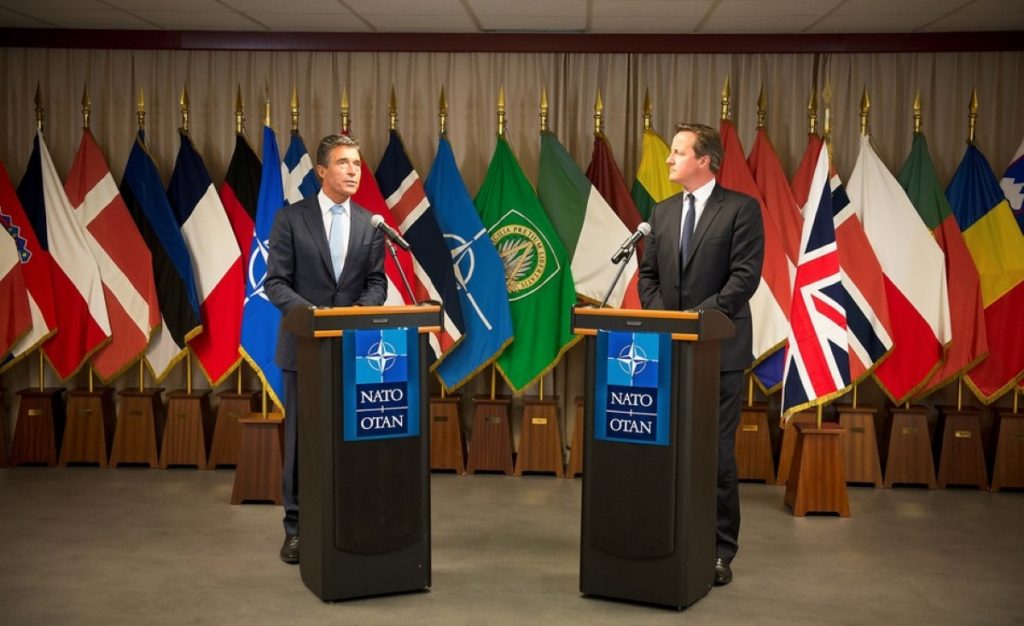Summit pressure: Behind the scenes, Cameron’s anti-Russia strategy might be faltering
Britain's Nato diplomacy is on a knife-edge ahead of next month's Wales summit, with agreement proving elusive over the buildup of Nato forces against Russia.
There are just 16 days to go until 60 heads of state, 1,500 media and 180 VIPs descend on Wales for the first Nato summit since Chicago's in May 2012.
This is a critical period for the alliance. Its mission in Afghanistan is coming to a close just as Russia's actions in Ukraine have created a new, more familiar threat to European security.
David Cameron has been among those calling on Nato to adopt a tough response to Vladimir Putin's "aggression" – but sources within the Foreign Office have indicated many of his proposals in a letter to Nato leaders sent out on August 2nd are "still being worked on".


"Six months into the Russia-Ukraine crisis we must agree on long-term measures to strengthen our ability to respond quickly to any threat, to reassure those allies who fear for their own country's security and to deter any Russian aggression," the prime minister wrote.
"All Nato allies have already contributed to the alliance's response to this crisis and we should agree how we can sustain a robust presence in Eastern Europe, consistent with the Nato-Russia Founding Act, to make clear to Russia that neither Nato nor its members will be intimidated."
Cameron called for a "new exercise schedule adapted to the new security environment".
In practice, this involves moving troops into countries like Poland. But hopes that troops could be permanently based in former Warsaw Pact countries have faltered. Diplomats now accept a 'rapid reinforcement option' is more likely.
Vital to this would be the pre-positioning of equipment and supplies. This could still be accepted by Nato member states, but more persuading appears to be necessary before the summit.
The prime minister also called for "an enhanced Nato response force" which "should be part of a broader action plan that enables us to respond more quickly to any threat against any member of the alliance, including when we have little warning".
But agreement has already been reached on the idea of a 'readiness action plan'. The idea is being promoted by Nato secretary-general Anders Fogh Rasmussen and General Philip Breedlove, Nato's supreme allied commander in Europe.
Writing in the Wall Street Journal, the pair argue that "speed is of the essence to deter sudden threats along Nato's borders".
http://online.wsj.com/articles/anders-fogh-rasmussen-and-philip-m-breedlove-a-nato-for-a-dangerous-world-1408317653
They have called for a number of steps including upgraded intelligence gathering and sharing, updated defence plans and "the presence of Nato forces in eastern Europe for as long as necessary".
British diplomats are most confident about the establishment of a forward headquarters for Breedlove, which defence experts say is an essential part of the revised response to Russia.
The most likely location for such a base would be Szczecin, an existing regional Nato headquarters in north-east Poland.
"There are no definite answers yet," a senior Foreign Office source said.
"But there will be a fairly substantial package designed to provide real reassurance to allies who are anxious about their security."

Britain is one of just four Nato member states which spend two per cent of more of their GDP on defence spending.
Its representatives at the summit will point out Nato's total defence spending has fallen by 20% in the last five years. In the same period, Russia's defence spending has increased by 50%.
"To a number of Nato allies, it no longer feels completely credible to go on taking the peace dividend," the Foreign Office source added.
"We probably can secure the commitment that allies will halt the fall in defence spending. It will mark the start of a sea change in attitudes, in that allies realise they need to commit to defence."
The summit takes place on September 4th-5th at Celtic Manor, near Cardiff.
Dr Jonathan Eyal, international studies director at the Royal United Services Institute think-tank, told Politics.co.uk Nato faced intense pressure to overcome its member states' divisions in the face of the Russian threat.
"If the Nato summit concludes with no demonstrable moves to move equipment for Nato troops, this will be interpreted by the Russians as a sign of weakness," he warned.
"What Vladimir Putin has done in Ukraine has turned Russia's prophecy [of Nato confrontation] into a self-fulfilling threat."

